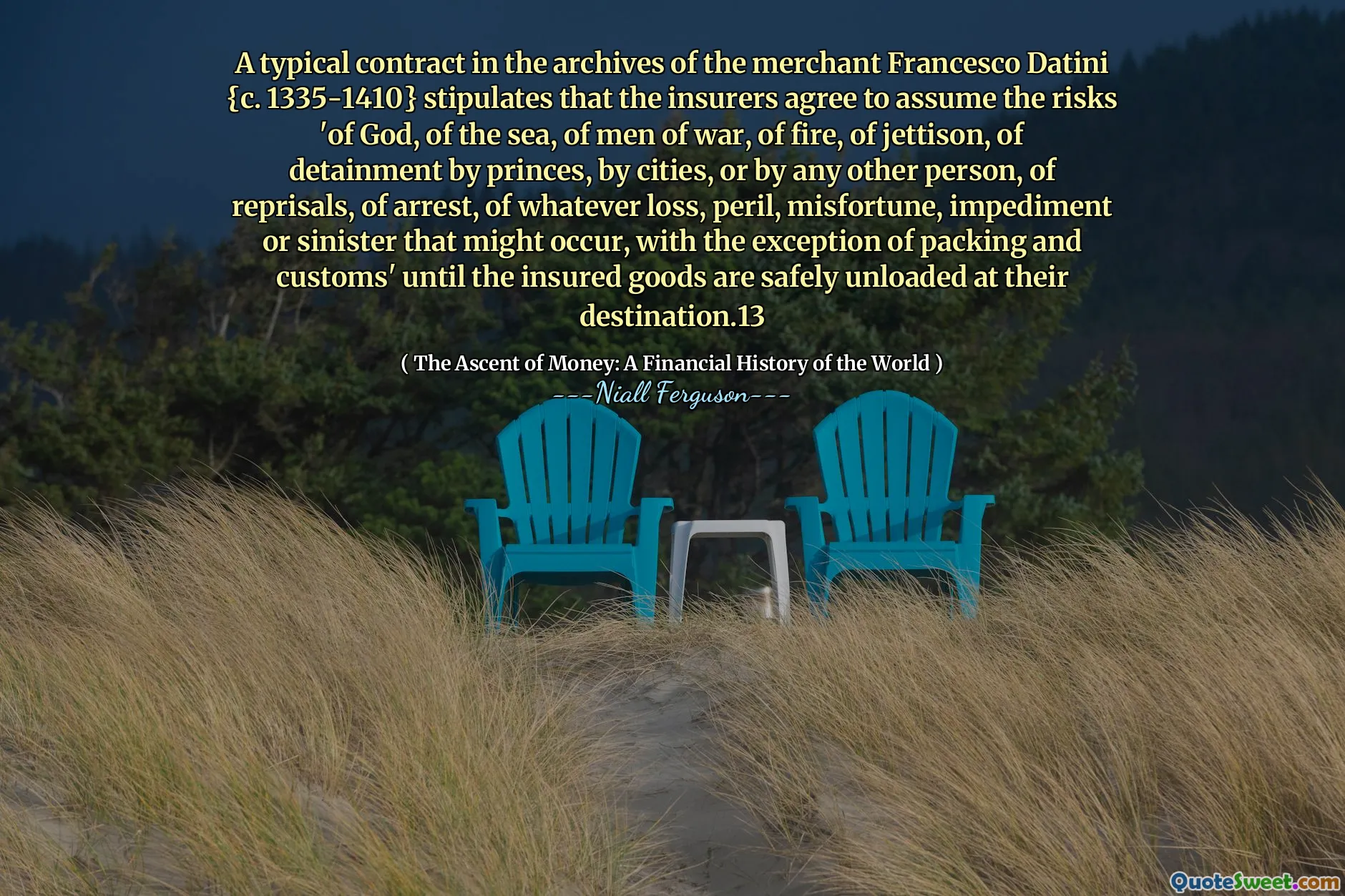
A typical contract in the archives of the merchant Francesco Datini {c. 1335-1410} stipulates that the insurers agree to assume the risks 'of God, of the sea, of men of war, of fire, of jettison, of detainment by princes, by cities, or by any other person, of reprisals, of arrest, of whatever loss, peril, misfortune, impediment or sinister that might occur, with the exception of packing and customs' until the insured goods are safely unloaded at their destination.13
The merchant Francesco Datini's archives contain contracts that reveal the complexities of insurance during the 14th century. These contracts detail the extensive range of risks that insurers would cover, including natural disasters, warfare, theft, and other unforeseen events. They underscored a growing recognition of the need to manage the uncertainties associated with commerce at sea, ensuring merchants could protect their investments from various perils.
Importantly, the contracts also specified certain exclusions, such as losses related to packing and customs, indicating that while insurance was becoming more sophisticated, it still had limitations. This reflects the early evolution of financial instruments that would gradually shape modern economic practices, highlighting how merchants navigated and mitigated risks in an increasingly interconnected world.











